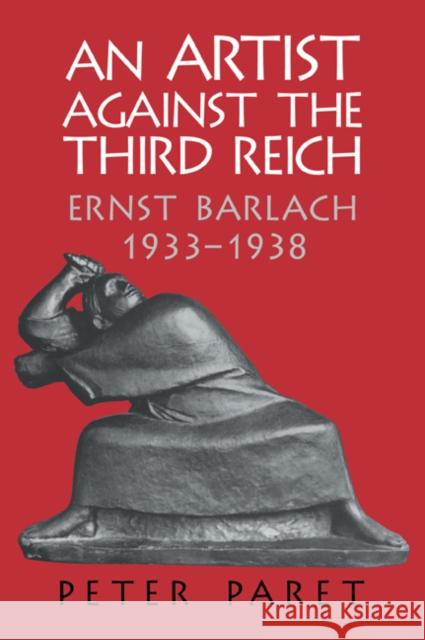An Artist Against the Third Reich: Ernst Barlach, 1933-1938 » książka
An Artist Against the Third Reich: Ernst Barlach, 1933-1938
ISBN-13: 9780521035705 / Angielski / Miękka / 2007 / 248 str.
An Artist Against the Third Reich: Ernst Barlach, 1933-1938
ISBN-13: 9780521035705 / Angielski / Miękka / 2007 / 248 str.
(netto: 170,28 VAT: 5%)
Najniższa cena z 30 dni: 146,03
ok. 16-18 dni roboczych.
Darmowa dostawa!
The conflict between National Socialism and Ernst Barlach, one of the important sculptors of the twentieth century, is an unusual episode in the history of Hitler's efforts to rid Germany of 'international modernism.' Barlach did not passively accept the destruction of his sculptures, but protested the injustice, and continued his work. Peter Paret's discussion of Barlach's art and struggle over creative freedom, is joined to an analysis of Barlach's opponents. Hitler's rejection of modernism, often dismissed as absurd ranting, is instead interpreted as a internally consistent and politically effective critique of liberal Western culture. That some radical national socialists nevertheless advocated a 'nordic modernism' and tried to win Barlach over, indicates the cultural cross-currents running through the early years of the Third Reich. Paret's closely focused study of an artist in a time of crisis seamlessly combines the history of modern Germany and the history of modern art. Peter Paret is Mellon Professor in the Humanities Emeritus of the Institute for Advanced Study in Princeton and Spruance Professor Emeritus at Stanford University. He is a member of the American Philosophical Society, which awarded him the Thomas Jefferson Medal and a Fellow of the American Academy of Arts and Sciences. The German government has awarded him the Officer's Cross of the Order of Merit. His other works include, German Encounters with Modernism, 1840-1945 (Cambridge, 2001), Imagined Battles: Reflections of War in European Art (Univ, of NC, 1997), The Berlin Secession: Modernism and its Enemies in Imperial Germany (Harvard, 1989), and Clausewitz and the State (Oxford, 1985).











